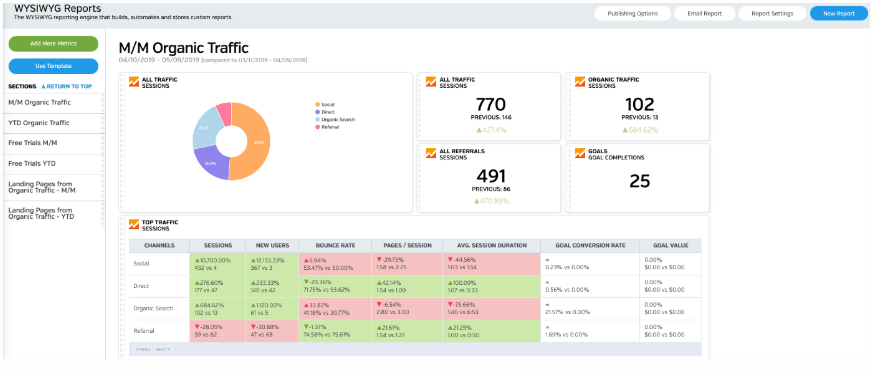Marketing. Everyone knows they have to do it, but how? There are great stories about DIYers who started with nothing but an idea and built a business from Facebook up, but is that feasible for everyone? Hardly.
A good marketing plan takes time, money, expertise, and sometimes the humility to say, “I can’t do this for myself; I must outsource!” So how do you know when to DIY and when to let someone else take the wheel? We’re here to help.
This article has two main focuses:
- What are your assets? Do you have the time, the money, or the expertise to run your own marketing campaigns?
- How can you put your assets to work for you? Which of your options–agency, freelance, or DIY, or maybe a mix of them all?–will be your best bet?
What Are Your Assets?
When you sat down to start your company, I imagine you did some thinking about all of the types of capital at your disposal. Maybe you made a list, maybe you spoke with an advisor, maybe you just spoke to the suds every morning in the shower, but at some point you decided: this is what I have going for me, and these are the other things I need for success. Take that same tack here. Be honest with yourself. Do you know marketing? Do you have the time to build and execute campaigns? Do you have some money to budget out for marketing along the way?
Expertise
This is the easy one of the three. If you are a marketer at heart or by profession, then you’ve got this part of the game covered. As a marketer, you can outsource other parts of your company and focus on spreading the word in all the ways that come naturally and are fun for you.
If marketing doesn’t come naturally, but you still want to go it alone, you’ll need to figure out what percentage of your daily/weekly/monthly/yearly budget of both time and money you can spend on learning the basics.
If you’re not going to do it on your own, and you’re going to outsource, you’re still going to have to know a little bit about marketing. You’ll want to start following some blogs (ours is a great place to start. Welcome! We’ve also got some great stuff on our YouTube channel). You’ll want to follow some marketers you trust on Twitter and LinkedIn. There are also more traditional channels that you can use to help you learn. Google and Coursera both offer free online marketing courses.
Time
This is the big one. You probably already started thinking about how much time you can spend on marketing in the last several paragraphs. Ask yourself these questions:
- How much time out of my work day can I spend researching marketing?
- Can I give some of my free time to researching marketing?
- How much of my time can I devote to laying out a marketing plan?
- Do I have the time and the resources to write content, including social media posts as well as full-length content, that will promote my brand?
- Do I have the time and resources to promote other forms of marketing that I plan on pursuing (including podcasts, webinars, trainings, conferences, white papers, etc.)?
- Do I have the time to design and implement online ads to drive web traffic?
- If I decide to outsource, how much time can I devote to planning, goal-setting and following up with my partners?
These are by no means all the questions, but keep them in mind as you start your online marketing plan. Set some goals for how much time you want to budget out, how quickly you want to accomplish your marketing goals, and re-visit your plans often.
Money
For many marketers, this is the biggest issue, but it shouldn’t be. Spending your own time on marketing can take you away from the main focus of your business, which could also take away from your main profits. It doesn’t matter if you’re running a one-person show or a 100-person show; If you don’t have a designated marketing team on staff, taking the time to learn marketing and implement a plan is going to take time away from your business.
That doesn’t mean it’s going to to take a lot of money away from your business though. If outside help is effective, your initial investment in marketing can continue to pay returns, all while freeing you up to work on your core business.
How can you put your assets to work for you?
Once you’ve figured out what you have and where you’re going, marketing-wise, you need to figure out how much of it you should do yourself and how much of it you should outsource. For this section we brought in three experts to give us a hand (because we, too, know when to outsource!):
What is the Best Fit?
Do It Yourself
Holly Burns estimates that 50% of their company time is spent marketing, but they choose to DIY because her partner, Steve has such a strong presence and following on Twitter, and it comes naturally to them. “So much of it is done in social media by Steve. Because he is his own brand, and posts his trades live on Twitter, no one else could fill that role.” It also allows them total control over their marketing plans.
Holly Burns recommends that you start small.
Focus on one or two things first; don’t try to be on all social media platforms, blogging, podcasting, etc. Being too spread out will make it difficult to establish yourself as a thought leader, and it’s impossible to maintain the level of consistency that is required. It’s better to be a big fish in a big pond than a little fish in a lot of little ponds.
She does caution that DIYers can get caught up in what they love, and forget about the role of marketing: to capture the audience’s attention. “Choose your marketing focus based on your customer demographic, not what you like or don’t like to do,” she says.
Hire Freelancers
Joel Klettke of Business Casual Copywriting doesn’t want you to think that freelancers are just a stopover between DIY and hiring a full-blown agency:
It doesn’t matter how big or small your business is, freelancing can always be a fit. I’ve worked with two-person startups and multi-national enterprises with staff of 10,000+. I also want to dispel the myth that only companies without the budget to hire an agency or a full-time staff member should go with a freelancer.
Yes, freelancers can be more affordable than agencies because you can bring them on for one-off projects or shorter engagements. And yes, freelancers fit nicely into the picture when you don’t want to explore areas outside your core competencies and don’t want to pay the sometimes ridiculous overhead of an agency. But that doesn’t mean they’re “cheap” labor (People in my field can charge $200+ for an hour of their time), just less expensive and more flexible than other options.
As with all other options, you will need to put in some work for yourself. Planning, budgeting, follow-up meetings are all in your future. However, if you can find a freelancer who believes in your product and understands your process, you may be all set. These folks are willing to work with you and for you for the best possible outcome.
Hire an Agency
Agencies can bring the best of all of these worlds together. Rami Perry of Centresource Interactive cites the ability to bring a variety of skills together combined with a dedication of purpose and tried and true iterative processes as the top reasons anyone should choose to work with an agency. She suggests that you refine your marketing focus, and then:
Come to the table with an open mind. We find that the most successful projects are based on a collaborative relationship. Your agency should also make every strategic decision, whether technical, design or feature related, based on the company’s business goals.
Agencies will dedicate their depth of resources to your specific needs. Many agencies have a specific niche that can become a superpower when combined with the strengths of your brand. Because agencies can bring a lot of minds together, the possibilities are endless using this option.
So what will it be?
So, should you learn it yourself, hire the freelancer, or contract with an agency? Or a bit of each? It’s always your call. You have to keep in mind, however, that it’s really down to expertise, time, and money. You can learn to become a better marketer on your own, but keep in mind that can keep you away from your core business.

White Labeled and Branded Reports. Drag and Drop Editor. Automate your SEO, PPC, Social, Email, and Call Tracking Reporting.



